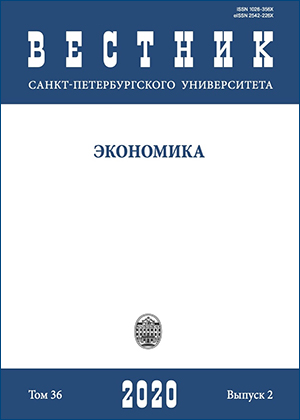Opportunities and prospects for using digital technologies in auditing
DOI:
https://doi.org/10.21638/spbu05.2020.206Abstract
The digital economy creates new opportunities for the development of all types of economic activity, and first of all it allows to improve the organizational, technical and methodological support of information services, which include audit services. Developing technologies based on artificial intelligence, descriptive and predicative analysis of big data can find an applied aspect in the digitalization of audit activities, which will help to accelerate the collection of information, the transition from manual procedures to computer-aided processing of information, planning algorithms and a deeper understanding of the activities of audited entities. With the development of the market of high (hi-tech) and end-to-end technologies, digitalization of information systems of economic entities, the problems of adapting auditory methodological and organizational-technological tools to current conditions become urgent. Thus, in auditing science there is a paradigm shift: the transition from traditional audit to intellectual (AI audit), the methodology of which is based on machine learning technology in the professional field and the use of professional cognition. The application of the ecosystem approach allows us to describe the features of the content and functional purpose of individual digital technologies for performing cognitive processes in audit activities. A cognitive ecosystem of audit activities is proposed, which is necessary for defining digital technologies, with the help of which specif- ic tasks and directions of audits and audit-related services can be implemented. The proposed ecosystem can be used as a supporting mechanism for creating a comprehensive AI-audit system in audit organizations and for developing AI-audit as a field of scientific knowledge.
Keywords:
digital economy, digital technologies, audit services, intellectual audit, AI-technologies, professional judgment
Downloads
References
References in Latin Alphabet
Downloads
Published
How to Cite
Issue
Section
License
Articles of the St Petersburg University Journal of Economic Studies are open access distributed under the terms of the License Agreement with Saint Petersburg State University, which permits to the authors unrestricted distribution and self-archiving free of charge.







